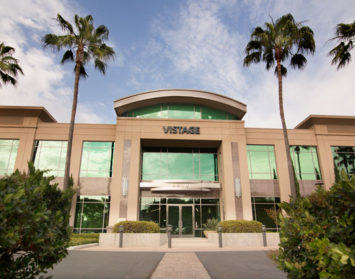By Scott Johnstone
Big Oil…Big Pharma…Big Banks…
Big Commercial Real Estate (CRE)?
The fact is that CRE, as with other industries, has its Goliaths. In the case of the property vertical, the titan entities include the names of: CBRE, Cushman & Wakefield, Jones Lang LaSalle, Colliers, Lee & Associates and Newmark Knight Frank.
Beyond their size, scale and scope, these commercial real estate institutions have another commonality: a primary business model to serve and represent building owners. For over a century, the brokerage industry has tethered itself to owners and landlords, leaving their customers–the tenants–to fend for themselves.
Unquestionably, this is big business.
According to BOMA’s (Building Owners and Managers Association) website, they “represent the owners and managers of all commercial property types including nearly 10.5 billion square feet of U.S. office space, accounting for $234.9 billion to the U.S. GDP.”
The dominant brokerages maintain close ties with property owners because they know that is where the money resides.
But where does that tight relationship leave the business owner, who actually utilizes the space? All too often they find themselves holding the short end of the stick.
Inverted Model
Commercial brokerage companies spend most of their time and energy helping landlords to the detriment of their tenant customers. The long-standing tradition of the “full-service” commercial brokerage company model allows these companies to represent both landlords and corporate tenants in negotiations—an obvious conflict of interest that provides the landlord with a significant unfair advantage.
This dual-agency approach places the tenant in a poor negotiation posture for lease and purchase opportunities. Brokers sitting at both sides of the table, and not putting their customer’s best interest front and center, is a glaring problem, which is largely ignored in the daily traffic of commercial transactions.
All industries survive and thrive in the long-term by focusing on improving the customer experience. In this case, however, brokerages disregard the engine that drives the economy…the business tenants.
A Solution
A customer ignored is a perilous proposition, but more interesting is how consumers, the tenants, have been willing to tolerate this distorted model for so long.
That dynamic is changing rapidly.
Hughes Marino is the nation’s premier tenant-only representation firm. The mission is straightforward: provide best-in-class commercial real estate offerings to tenants and buyers…never landlords and owners. The sole fiduciary responsibility is to tenant clients with a 100 percent dedicated commitment to protecting only their interests.
In practice, this approach serves business owners by securing a seat at the negotiating table with equal status. No longer does the property owner’s broker call all the shots on tenant allowances, rental rates and contract obligations.
At last this is about the tenants’ best interest, not ensuring that owners always secure a premium deal. Bottom line, there is no conflict of interest at Hughes Marino. Clients never experience uneasiness in worrying that behind the scenes, their brokerage might not be looking out solely for them.
Case Study
Take the simple example of codes and standards on building measurements. Over the last several decades, buildings have grown larger, on an “as-measured” basis. Consider that tenants want to pay rent based on usable space, however, owners include in that definition: floor common areas, building common areas and major vertical penetrations in their calculations. End result, the tenant pays more rent for less actual space.
Tenants renewing a lease are surprised to find that they are paying more per square foot than previous years but are occupying the identical footprint. This is exactly the type of activity that flies in the face of putting the customer’s interest first and foremost.
Hughes Marino is empowering tenants to stand strong against a system rigged for the landlord. The time has long past to sit idle…the underdog David is ready to battle for their rights in the commercial real estate sphere, and Hughes Marino is the tenant champion.
In Business
The commercial environment is complex, whether the vertical is retail, healthcare, manufacturing, technology or business services. A business owner must navigate hiring, supply chains, finances and a host of other operational synergies, on top of the basic necessity of securing a space for their company to thrive.
When it comes to this industry, an executive team might consider expanding into a new space, purchasing a new building or negotiating a lease with significant tenant improvements. As with the plethora of day-to-day business decisions, it only makes sense to have an advocate and advisor at your side to help navigate the nuances of commercial real estate transactions.
A new era is dawning on CRE. Hughes Marino is introducing revolutionary change to a sector controlled for decades by the landlord brokers. Disruption forces new ways of thinking and operating, and that means the old guard brokerage architecture is in line for a massive transformation.
Scott Johnstone is a senior vice president of Hughes Marino, an award-winning commercial real estate company specializing in tenant representation and building purchases with offices across the nation. Contact Scott at 1-844-662-6635 or scott.johnstone@hughesmarino.com to learn more.








